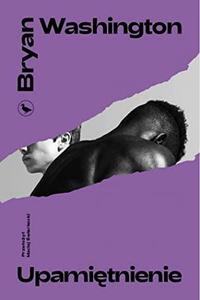Take a photo of a barcode or cover
I’m not entirely sure how I feel about this book. There were a lot of things I liked but as a whole I don’t feel very strongly about it. I enjoyed reading about every relationship except for the main one.
this book wasn’t very plotty and the ending was a bit ambiguous it just dropped off, but I still enjoyed it bc it’s the most raw book I’ve read in a while. I tend to enjoy escaping into the fiction I read so if that’s your type of book then I wouldn’t necessarily recc this one to u.
This book made me sad bc these two lovers just didn’t know how to love each other, and I guess that’s realistic and that’s life u know.
This book made me sad bc these two lovers just didn’t know how to love each other, and I guess that’s realistic and that’s life u know.
It was going to be a 4 but then the ending made it a solid 5.
I just love Bryan Washington's writing. I found him through Family Meal earlier this year, which I loved, and decided to go back and read some of his other stuff.
He has this way of conveying tenderness and intimacy that's raw and powerful and utterly believable, and while I'm now spotting many similar tropes across his work: unflinching descriptions of sex, lashings of food bringing people together, and the juxtaposition of Black, Japanese and Texas queer culture, Memorial still felt totally fresh.
He's fast becoming a new favourite author of mine and I'm looking forward to reading even more of his work.
I just love Bryan Washington's writing. I found him through Family Meal earlier this year, which I loved, and decided to go back and read some of his other stuff.
He has this way of conveying tenderness and intimacy that's raw and powerful and utterly believable, and while I'm now spotting many similar tropes across his work: unflinching descriptions of sex, lashings of food bringing people together, and the juxtaposition of Black, Japanese and Texas queer culture, Memorial still felt totally fresh.
He's fast becoming a new favourite author of mine and I'm looking forward to reading even more of his work.
reflective
sad
medium-paced
Plot or Character Driven:
Character
Strong character development:
Yes
Loveable characters:
Yes
Diverse cast of characters:
Yes
Flaws of characters a main focus:
Yes
I have so many thoughts about this book and I definitely could relate to all of the characters. I so loved all of the little simple yet complicated intricacies of their relationships with each other. My favorite was the relationship that grew between Benson and Mitsuko. Kind of a sad story with a little twist of hope.
I liked the representation in this book but the relationship was toxic and I couldn't quite grasp what the takeaway was
A couple out of sync and trudging through life. Interesting style and storytelling. Overall, a little underwhelming though.
Anything that makes me feel even slightly like [b:On Earth We're Briefly Gorgeous|41880609|On Earth We're Briefly Gorgeous|Ocean Vuong|https://i.gr-assets.com/images/S/compressed.photo.goodreads.com/books/1615580168l/41880609._SX50_.jpg|61665003] and there is something about Washington's style and tone that impacts me in a similar way to Vuong. It's hard to say if I would recommend this in print or audio. In print you get the images but in audio you get Washington's voice reading his words. Maybe read it twice.
Genre: LGBTQIA fiction; Literary fiction; Multiple perspectives
Themes: Coping with death; Love on the rocks
Character: Complex; Culturally diverse; LGBTQIA
Storyline: Character-driven; Intricately plotted; Own voices
Pace: Fast-paced
Tone: Moving; Reflective; Sardonic; Strong sense of place
Writing Style: Engaging; Stylistically complex; Thoughtful; Well-crafted dialogue
Genre: LGBTQIA fiction; Literary fiction; Multiple perspectives
Themes: Coping with death; Love on the rocks
Character: Complex; Culturally diverse; LGBTQIA
Storyline: Character-driven; Intricately plotted; Own voices
Pace: Fast-paced
Tone: Moving; Reflective; Sardonic; Strong sense of place
Writing Style: Engaging; Stylistically complex; Thoughtful; Well-crafted dialogue
dark
emotional
reflective
sad
medium-paced
Plot or Character Driven:
Character
Strong character development:
Yes
Loveable characters:
No
Diverse cast of characters:
Yes
Flaws of characters a main focus:
Yes
Like that between its characters, my relationship to this book is complicated.
Sometimes I admire books even if the characters are annoying. This is because real people are annoying, and I find that disagreeing vehemently with characters’ choices or thoughts can add a layer of realism to the book (Xochitl Gonzalez’s Olga Dies Dreaming was a great example of this for me). Other times, though, the characters irritate me in a way that’s difficult to get behind. Unfortunately, this was often the case with Memorial.
I am someone who gets especially annoyed with things I’m supposed to be annoyed by. In this case, I so desperately wanted the two main characters, Mike and Benson, to break up. Which, of course, is the point. That doesn’t mean I have to like it, though! It’s extremely clear that this relationship, or iteration of it, has run its course. But by the last section, by which point Mike and Benson have both met new people and undergone familial transformations, I did find myself wondering, maybe even hoping, that there were more than just scraps to their relationship that could be salvaged.
There were some aesthetic choices that I didn’t much care for: a lack of quotation marks, for instance, the inclusion of the occasional photo. I don’t know if either one of these elements added much to my reading experience. I was also caught off guard by the switch in POV in the middle of the book – though now I cannot imagine not having Mike’s perspective while in Osaka.
However, there were moments where I did find the prose to be delightful. For instance, a kiss is described as sounding like an oyster being shucked. Eiju’s lists – of his sounds he loves or things he doesn’t believe in – were quaint and much needed insight into that mean ass old man.
There were two major twists, involving Benson and Mike’s mother, Mitsuko, that I did not see coming and was pleasantly surprised by. In this way, the characters felt as restrained/alienated to the reader as they do to one another – which I think speaks to the skill of Washington’s writing and character construction.
Something else I greatly admire about the book, is its ability to acknowledge that change isn’t necessarily one big event. It’s a force that is ever present and effecting. This is especially true for Mike’s relationship with his father. Of course, the move from Japan to the US is huge. But that’s not when Eiju becomes an embittered alcoholic or his marriage falls apart. These precise moments are indiscernible. It just happened. Yet Mike’s narrative is riddled with brief asides of the love he and his father once shared. I found myself wondering at what point do we begin to disappoint our parents? At what point do they begin to disappoint us? Which happens first?
It is so clear that Benson and Mike are bringing the trauma they’ve each inherited from their families to their relationship. I’m no psychologist, but I’ve heard that this is often the case. I think this is what makes the closing section work so well. Each of these families, who have created these aching and spiteful men, urge them to stay together. It does read as an apologetic gesture – but a meaningful one nonetheless.
All in all, I don’t think this will be a favorite mine, but there was a lot to admire! Thank you, Kayla, for the recommendation.





